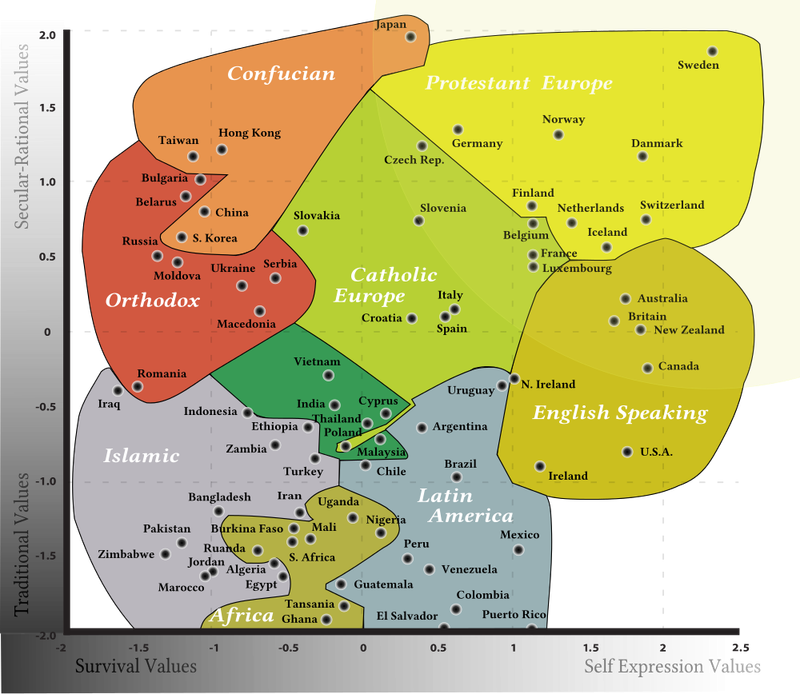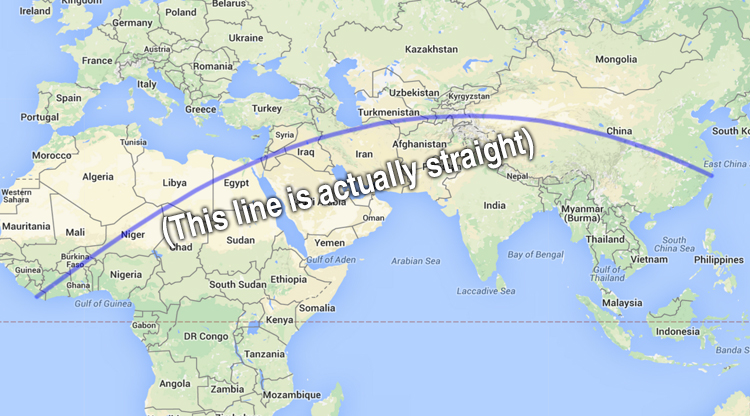Professors Ronald Inglehart of the University of Michigan and Christian Welzel of Leuphana University have created this Cultural Map of the World to compare how values vary on a global scale.
Using data from the World Values Survey, the graph plots nine cultural clusters (English-speaking, Catholic Europe, Confucian, Orthodox, etc.) according to attitudes to traditional values (religion, family, nationalism) versus secular-rational values and survival values (economic and physical security) versus self-expression values.

As the graph shows, traditionally Confucian-based East Asian societies generally sit in the top-left corner, prizing survival values and secular-rational values.
Somewhat surprisingly, China values self-expression values more than Taiwan and South Korea, according to the survey data, and prescribes to traditional values more than Hong Kong or Taiwan.
Within the Confucian cluster, Japan is the biggest outlier, attaching more importance to secular-rational values more than any other country surveyed, and esteeming self-expression values more than any of its neighbors.
The closest society to China in terms of values is Belarus, with the Orthodox cluster generally nestled closest to the Confucian one. English-speaking countries are generally in the opposite corner, and this is truest in the case of the USA, which cherishes self-expression but eschews secular-rational values.
Although the findings inevitably represent an over-simplification of individual's viewpoints as well as the somewhat clumsy categories by which countries are grouped, they do prove that values do not necessarily follow a set trajectory but are intrinsically tied to a society's cultural foundations.
While it's often assumed to increased development, prosperity and education lead to a proliferation in self-expression and secular-rational values, highly developed and wealthy Confucian societies such as Hong Kong, Taiwan and South Korea continue to cling to survival values, while America and Ireland are equally tenacious in their traditionalism.





















0 User Comments